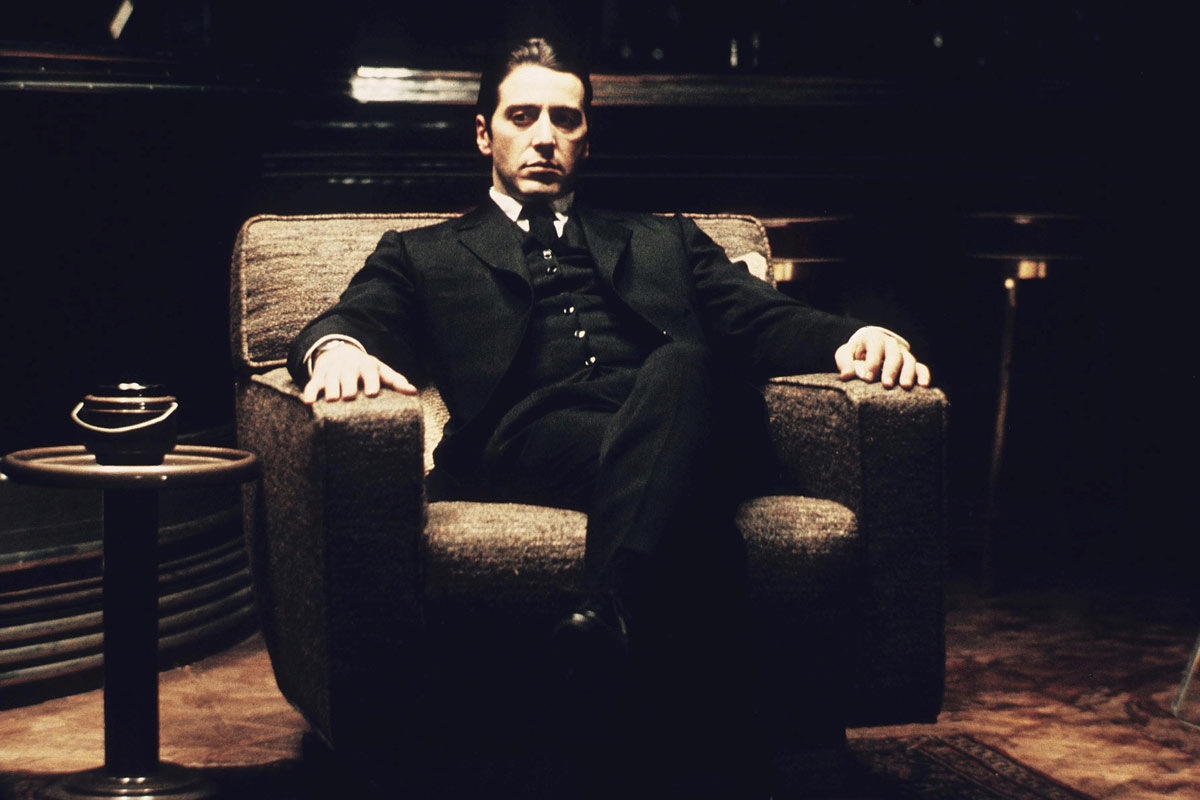Creating The Character
“The only true voyage of discovery,
the only fountain of Eternal Youth,
would be not to visit strange lands but to possess other eyes,
to behold the universe through the eyes of another.”
– Marcel Proust (1922)
Character and personality can be defined as the emotional qualities, thoughts, and behaviors that contribute to who a person is. Who we are as people is very much relative to when and where we as individuals are raised. Our environments, our cultural values, environmental resources, and the times we grow up in all contribute and shape who we are as people. If we are to convey a meaningful story as actors, then we as actors should regard our characters through this understanding. Respecting and exploring the same multitude of facets that contribute to who the character is will play an essential role in the story that is being told.
The actor has to address the character attributes, and pique the particular parts of themselves that will truthfully bring the character to life. We all have the capacity to experience and express the vast spectrum of personality and emotions that lie within. Through developing a deep awareness and curiosity of the world and people around us, we give ourselves that ability to relate to the world we live in. Human beings have an incredible means to empathize and connect with others from all over the world, and such traits are gifts in that we can incorporate and learn from one another in various skills, knowledge, wisdom, etc… If we are willing, we can investigate where our various moods and emotions lie, elements of differing personality, sometimes drastically, love and hate, kindness and destruction, etc… We all have these attributes within us and it takes an open mind, curiosity, insight and perception to delicately explore these elements of the human psyche. Through our art we bring these elements to the stage, and through courageous story telling we can hopefully influence the times for the better, have a say in our culture, promote human rights, a deeper relating to one another, allow the audiences to see their own plights reflected on the stage and perhaps instilling bravery or change. Culture is profoundly dictated by art through the messages audiences receives, be it through lyrics of a song, pictures on a billboard, political graffiti in a war torn city, or images in film and television. It is a privilege to bring forth within ourselves these characters from other times and cultures and use as a vehicle for a meaningful story to be told. The actor has many questions to ask of themselves to address the differences between who they are as people and the characters they are to play.
Through investigating these differences and also similarities, the actor can then bridge the gap to edge closer to bringing forth the character. Often the actor’s job is to reveal something meaningful about the character and if the actor plays truthfully, it will ultimately be a revealing of themselves that will ultimately resonate lastingly with the the audience and the times. The Group Theater strived to produce work that dealt with the signs of the times. Clifford Odet’s Waiting For Lefty about the union workers on strike was a piece used to criticize and attack large capital structures unchanged during the Great Depression. The characters had strong and lasting impressions on the audiences and would break the fourth wall often.
Harold Clurman remarked:
“The first scene of “[Waiting for] Lefty” had not played two minutes when a shock of delighted recognition struck the audience like a tidal wave. Deep laughter, hot assent, a kind of joyous fervor seemed to sweep the audience toward the stage. The actors no longer performed, they were being carried along as if by an exultancy of communication such as I had never witnessed in the theater before. Audience and actors had become one …”
Brenman-Gibson, Margaret (2002), Clifford Odets: American playwright : the years from 1906 to 1940, Applause theatre & Cinema Books
We can see as the audience and actors (characters) had become one that the emphasis on such character work can allow the audience to become deeply engrossed in meaningful story telling and culture, and the intention that GROK today strives to establish:
Grok means to understand so thoroughly that the observer becomes a part of the observed—to merge, blend, intermarry, lose identity in group experience.
The Oxford English Dictionary defines grok as “to understand intuitively or by empathy; to establish rapport with” and “to empathize or communicate sympathetically (with); also, to experience enjoyment”.
BEING THE CHARACTER

“The analysis of the text is the education of the actor.” The Devil and God, I believe those two elements are in us, are in me — not up in the sky, not down below the Earth, but right here in me, My Heaven and my Hell are right here in me. And in order to not stoop to do Evil, I have to know what I am capable of. And what Evil might be in me, what Devil might be in me, and what goodness might be in me. To play the role of the pimp in TAXI DRIVER — I would never be a pimp. I would never sell another human being’s flesh and soul to another human being. But it was interesting to investigate what a man who lives in poverty, who knows no other way but what he is taught in the environment he lives in to perform, what his role models are, what he might do, what I might do if I was born into that element. It’s fascinating; it gives me a chance to see many aspects of myself. I’m no Devil, and I’m no Angel!
Creating a character is an imperative responsibility of the actor to ensure that the story being written is accurately conveyed. Often actors will have material in which the character may differ greatly from who the actor is as a person. How does one create a role that may drastically differ from the personality of the actor. The process is actually very fulfilling and a great aspect of being an actor. Asking questions about the character’s physical attributes, emotional affect-ability and expression, introversions or extroversions, mannerisms, level of intellect and social status, level of confidence or lack thereof, are all necessary to stimulate the inner life and intricacies of character. The actor must make strong choices to bring these traits to life and do so organically.
Example:
In Donnie Brasco, Al Pacino plays a low level gangster named Lefty. Lefty is older than many of the members of a particular crime family, and yet still holds a low post, unable to have worked his way up the ladder to become a “made-man.” Throughout the film it is evident that Lefty feels unappreciated, unseen, unacknowledged, treated with a lack or respect and has to defer to those around him. His efforts and hard work go completely unnoticed. There is an obvious sorrow and loneliness to him and he is alienated by his peers. What many find so impressive about this film when surveying this material, is the perceivable or at least assumed, immediate separation in which Al Pacino, of Godfather and Scarface may feel in relation to his co-stars and himself in his security as a great actor, versus how Lefty relates to his peers and his sense of worth in his position. Pacino, a very-well regarded artist by his peers, on set truthfully displayed all of this disappointment, disrespect, feeling excluding, not fitting in, inferiority in relation to the rest of the cast. These are differences between the life of the actor and that of the character that in whichever way Pacino works, he very convincingly accomplished piquing the truths of the character.
Just by acknowledging these realities it is evident that his experience drastically differed than those around him, in that that the crew, the cast, everyone involved while shooting most likely treated Pacino the complete opposite of the character attributes. In relation to the other characters, Lefty must feel inferior and less than, while Pacino as an actor possibly or for argument’s sake, couldn’t have helped but feel quite contrary: the phenomenal career he’s had and the reality in which the cast/crew actually treat him on set, respectfully. It may be unknown what Al Pacino’s specific process was or the means he used in which very successfully brought this character to life, but by using this material here as an example, the actor can hypothesize where to exert their particular and unique process to find their unique truths to reveal the character.
Process:
As an actor you’ve been given a role and are required to truthfully bring the story to life. Perhaps an actor may not believe in using their past or simply doesn’t care for such process despite it potentially yielding desired results. They refuse to waiver and ignore a childhood that had perhaps evoked feelings of humiliation during a rough or painful time in school; peers made you feel small when you tried so desperately to earn respect or find belonging and acceptance. Or this could have been the model of being a middle child and the relationship to your siblings, your role in the family. Comparatively, many actors ignore the world around them to tap into some memory when there is so much rich life available in the here and now. What many actors lack is how to find a reliable and dependable means to create the necessary reality. They hope and pray the work just goes the direction they believe the scene is supposed to go in their head. However, an actor can have many tools to bring truth to their work with their own unique means.
WHAT IS THE CHARACTER EXPERIENCING?
Asking questions is a wonderful place to start because it gives the actor room to discover choices and ways of relating to the material rather than making immediate decisions.
Still using the example above of Lefty from Donnie Brassco, we know that the character experiences feeling hurt, rejected, inferiority, unappreciated, a lack of respect, alone and alienated, a low level of self-worth. Lefty has a deep need to be respected, included, appreciated, and validated for his efforts. Indulging the scenario that it is you that is a movie-star playing this role, it is your job to bridge that gap of being that person and being that character from a truthful place. By honoring the realities of the situation the actor can authentically work for his character, making the necessary adjustments to the realities of the situation as he goes, building a momentum and believable foundation for his work.
Dealing with Reality
Eric Morris of ‘No Acting Please’ says that “Truth can only come from a place of truth.” Hypothetically, a movie-star in this role of Lefty could include the reality of his peers on set treating him with respect in between scenes or outside of work although it is contrary to how the characters treat Lefty. The reality is that people are in fact treating you this way, ignoring it could potentially create a block or wall of relating to those around you. Ironically, including it would allow the actor the freedom to do what they wish with their present reality rather than imposing a fictitious or pseudo-behavior instead. The actor could manipulate the reality, emphasize certain attributes and minimize others. The reality of the situation must be dealt with and included, even if it initially feels contrary to the necessary demands of the material. Ignoring what the reality is and what the audience takes in will only create a dissonance and confusing experience for everyone. Including the moment-to-moment reality is what’s necessary, and from then on the actor can choose how they in fact respond to what is being given to them. By asking questions we may find that if we were a movie-star of the same caliber in the business, working on this low-budget indie, we may be able to relate to Lefty. As they say, it can be lonely at the top. After all, both Lefty and the actor are aged, have put in years and years of dedicated work into businesses that have grotesque inner-workings, awful and unethical individuals, being treated like a piece of meat. Even being a movie-star, we realize such treatment is the flip-side of the same coin in regards to these character attributes. We can manipulate and emphasize all of the realities that occur on set.
Building the foundation and real needs the character as Schepkin stated “An actor must become the character the playwright intended him to be. He must walk, talk, think, feel, cry, laugh, whatever the playwright wants.”
After investigating the role of Lefty and only after asking many questions, the actor is ready to deal with building the foundation that will promote the desired behavior of the character. The needs of the character are understood, striving to fulfill them truthfully will promote the behavior of the character. Firstly, create the need to enjoy, to have a sense of belonging, to feel comfortable in your skin, relaxed and secure in your post/job/position. Much of Lefty’s behavior is impelled by his need to attain all of these desires. It would then be logical to create this need by realizing where we may be deprived. In any profession, any employee can relate to a need to feel secure in their position and job security, your well-being and family’s well-being depend on it. You also desire to enjoy time with your colleagues or co-stars and overall experience. However, once crew or co-stars begin being overly gracious and kind which is a reality and one that contrasts with Lefty’s reality, you the actor may feel such intentions are not so honest. If being treated with an immense amount of respect is contrary to what the character experiences, and simply realizing that people who often admire you will be overly affectionate and complimentary, then this is a happening that can be manipulated. Often we will treat people we admire with so much respect so that only in return we can be validated and acknowledged by the object of our affection — in which reciprocated by someone whom’s value and work we appreciate; its a selfish endeavor rather than the behavior benefiting the person we admire, we only want something from them. As actors play, and have a willingness to believe or a suspension of disbelief, the actor has then justified the received treatment in way that may actually affect him in a deeper and more hurtful way.
Fear of Failure
Actors of course are very familiar with the need to do good work as jobs are scarce and good work helps ensure future employment. Also, this high-level treatment can also instill a pressure to not let anyone down and disappoint. A fear of failure begins to build. It could be incredibly hurtful and damaging if for some reason you don’t meet the expectations people are expecting of you. Additionally, this level of treatment is actually unwanted and unwarranted if your need is to just fit in and be one of the guys. You as the actor can feel the alienation because no one really includes you in their authentic reality to begin with. They don’t give you a chance to just belong and treat you as one of them; they treat you differently and disingenuously, stimulating a lack of trust. Recall the “Importance of Rehearsing blog” in which Charlize Theron was quoted as saying:
“I’d rather have that honesty working with someone than someone who fake-smiles through something — especially for actors, when your job is to go for the emotional truth. When you’re with somebody and you don’t feel like you’re in their emotional truth, then you don’t trust them.”
The actor includes all of his insecurities and feelings of rejection. The actor includes self-consciousness in physical attributes, lack of masculinity, appearances, level of attractiveness, anything that will promote the behavior which impels the behavior of the character from a real place; in which real behaviors will be achieved. From this point you are left on set feeling similar realities as Lefty, and although the justification to how the characters treat Lefty and how the crew and cast treat you as an actor may emanate from contrary sources or reasons, the results of how it makes you and Lefty feel are the same. Actors can creatively-manipulate and selectively emphasize around this foundation, devaluing your worth in that you’re doing this low budget feature, you don’t like the way certain people treat you, you deserve more money, infinite reasons to continue to devalue your worth and continue to contribute to pique the truths Lefty feels. This can all be a spring board at the least to fulfill the responsibilities of the piece. Everything you as an actor needed was right in front of you, as long as you are willing to let the reality in and let it affect you, including it, dealing with it, and expressing it (easier said than done).
“I think good actors go all the way. If you want to be a safe actor, and you emotionally protect yourself from things getting out of hand, the performance will show all of that. Anyone who really, really, really goes into the deep dark corners of what emotional truth is, as somebody who works opposite of that, you have to be grateful for that. I beg for that. I beg for that on a job, that potency to the stew that makes it that magic that it is.” – Charlize Theron
Trusting the journey of the character and the journey it takes the actor on…
Trust is an invaluable asset for an artist which allows the actor space to create and express freely, trusting where the piece will take them. The lesson to create this level of truth is honoring the personal realities — the truth. Again, while these personal realities may be a conduit of expression and building blocks of self-worth of the character, this role requires digging deeper to fulfill other obligations of the material: The violent and criminal life Lefty is involved in, paranoia and concern for his well-being, feeling intimidated in relation to the other characters, that which contributed being involved with criminal life to begin with… These qualities require a means to stimulate as well. Now that the actor has created a rather accurate relationship to his co-stars, he can begin to build the realities necessary to fulfill the remaining responsibilities. Eric Morris said, “Truth can only come from a place of truth.” Obviously there are actors who want to conjure all sorts of imagined contrivances. And although imagination is an invaluable asset to an actor when employed appropriately or creatively stretching the realm and fabric of the actor, truthful results must come from a place of truth. When an actor “experiences” vs “acting” or anything else stimulated by non-truth, regardless how elaborate or clever, never can it replace truth. Audiences pay for the truth and demand to hear the truth, the theater and film industry should ensure they get it.

Stimulating the inner-life will directly affect the outward life and behavior of the character, allowing the actor to transform their persona and entire disposition to fulfill the material of building a character.

ADDITIONAL MEANS TO CREATING THE LIFE OF THE CHARACTER
There is a beauty in creating roles through observations and learning to inherit the inner life of other beings and learning to relate to the world more cohesively. Many institutions inaccurately provide a practical means or fail to supply why making their actors create the physicality of another living creature could be of any value, other than resulting in a cheap mimicry of shallow impression. If the process is correctly and specifically applied, the actor will transform his physical behavior, habits, mannerisms, tempo and rhythm of his body and soul. These changes will consequently affect thought and behavior. By changing how one relates to the world, it’s understandable that this also changes how one takes it in. Also, stimulating an inner life organically will drastically change the outer workings of behavior more so. Developing a keen awareness to one’s own body, stimulating a curiosity and observation of life around, all contribute to the building blocks of truthfully bringing character to life. The results can transform an actor who commits to these roles and brings his experiments to class. An actor may tap into strengths and entitlement they thought were not of reach, or discover a truer self through a peeling away of their exterior, most worn, pronounced traits; finding that their bold confidence is a false sense of such compensating for feelings of unworthiness and years of mistreatment. A hardened defensive, alpha-male may strip away attributes to tap into a well of deep vulnerability that at one time or another was too difficult or unsafe to explore or express, and so developed a defensive nature to protect from such experiences. A submissive actress desperate for attention and validation who constantly seeks assurance and approval may begin to honor her own assertive points of view of the world and a hidden integrity and power. Through this investigation, the actor becomes more human, more relatable, ultimately bringing all the more that life has to offer into their world. Such work becomes harmoniously cyclical, bounding an audience to the actor’s depths and a revealing of the character’s journey that hopefully the audience embarks on as well, leaving a lasting impact. Through this journey of art, changes and transformations will occur, not just on stage but in life; culture will adjust or adapt, politics are given a forum, acceptance edges closer to the universal, life breeds creation; a creation that started with you asking what the similarities and differences were between you and that other being and discovering we’re all really not so different after-all…
Excerpt from Charlie Rose © CharlieRose.com
Used with permission. Special Thanks to Charlie Rose Inc.
“Always keep nature in mind . . . Seek to be in society as much as time allows, study man “en masse,” don’t neglect even the smallest scene, and you will discover why things happen one way and not another. This living book will serve you well until we have a body of theory, which, unfortunately, our art does not yet possess. Therefore, scrutinize all classes of society without sharp prejudice toward one or the other, and you will see that there is good and evil everywhere. This will give you the ability in acting to give yourself to every society . . . Then, no matter what situations are taken from life, you will always play them truthfully. Sometimes you may play poorly, sometimes only satisfactorily, but you will play truthfully.”
“An actor must become the character the playwright intended him to be. He must walk, talk, think, feel, cry, laugh, whatever the playwright wants.” – Schepkin






